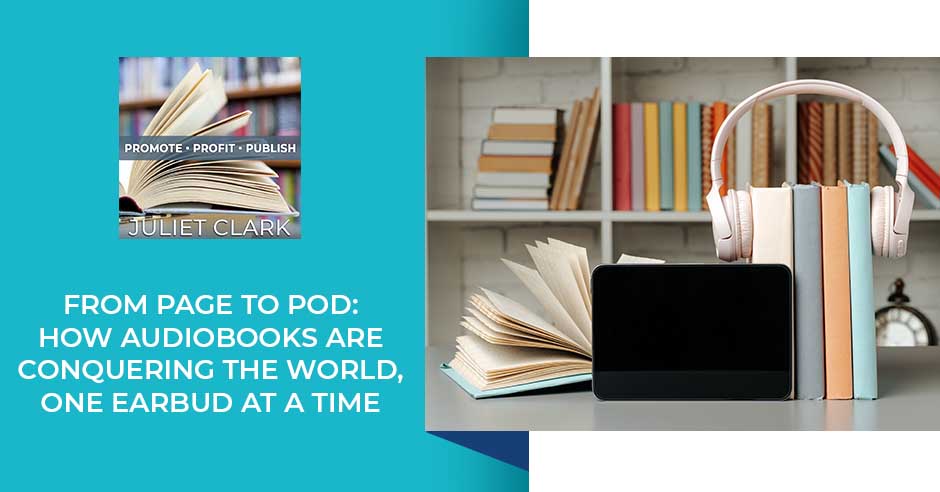
The advent of technology and innovation paved the path of the shifting realm of authors. The birth of audiobooks shifted the trend from page to pod! In this episode, Tina Dietz, the Founder and CEO of Twin Flames Studios, talks about how audiobooks are conquering the world, one earbud at a time. She explains the three primary things to consider when doing audiobooks. Tina also takes us into where the audiobook market will go in the future. Let’s delve more into this episode and learn how Twin Flames Studios could help you with this latest trend. Listen to this insightful conversation with Tina Dietz today.
—
Watch the episode here
Listen to the podcast here
From Page To Pod: How Audiobooks Are Conquering The World, One Earbud At A Time
I’m pretty excited about our guest because you guys are going to get an update on the audiobook world. Before we get started, I want to remind you to run over to Breakthrough Author Magazine and download your free subscription. It’s www.BreakthroughAuthorMagazine.com and lots of tips and tricks about writing, platform building, publishing, aftermarket book marketing, and all sorts of free things over there. Our theme this year is how to ditch that middleman, those strategies to bypass the 55% that you have to pay the distributors. if you’re someone who wants to make money on that book and isn’t happy with the 1, 2, or 3 books that the royalties are a piece now, learn how to make more money by downloading the magazine.
Don’t forget to go over to our book club. We have Breakthrough Authors Book Club. It’s www.BreakthroughAuthorsBookClub.com. That is probably the only Amazon book club where you have access to the actual authors. You can ask questions. You can find out more about what they do. If you want to work with them, you can find out how to work with them. When you go over to those URLs, you will have to sign into your Amazon account to join. I love to have you guys over there and showcase not only our authors but also read some good books that probably don’t get as much press as some of the bigger authors out there.
Our guest is Tina Dietz. Tina is the Founder and CEO of Twin Flames Studios, an award-winning audio publishing house dedicated to cultivating cultures where excellence, creativity, and innovation thrive. Her first podcast The Start Something Show was named by Inc. Magazine as one of the top 35 podcasts for entrepreneurs. Her latest podcast Drink From the Well reaches more than 300,000 people around the world who are thirsty for her leadership elixir.
Tina is also an award-winning internationally acclaimed speaker, audiobook publisher, podcast producer, and vocal leadership expert whose work and shows have been featured on media outlets including ABC, NBC, CBS, The Wall Street Journal, The Chicago Tribune, Inc. Magazine, and Forbes. She’s been named one of the top podcasters for entrepreneurs by Inc. magazine. Twin Flames Studios reimagines thought leadership through podcasting and audiobooks for experts, executives, and founders. This is going to be an Illuminating episode because if you think about publishing a book, many people are listening via audio today. Find out whether you need that audiobook as part of a multi-platform strategy as well. Hang on for that interview with Tina.
‐‐‐
Tina, welcome. We are excited to have you back.
I’m happy to be here.
It’s been over a year now, but my audience is always curious about this. Is an audiobook worth it? Where’s the market going? Should it be a part of my multiplatform strategy?
Do An Audiobook
If you have a multiplatform strategy, then choosing to do an audiobook needs to be evaluated as a part of that. Most of the folks that we work with, because we specialize exclusively in nonfiction and even more deeply in author-narrated nonfiction, 95% of our clients are in the same position. I’ve been a business coach for many years before I pivoted into audio. I deeply believe that you have to have an integrated approach if you’re going to consider having an audiobook, having a podcast, or working with any medium that’s going to take your time, energy, and money. Here are a couple of things to consider specifically about audiobooks.
Audiobooks shouldn’t be just a book as a product. It also should be a marketing asset for you. If you’re somebody who is branding themselves through your actual physical voice, not just what I call your big V voice, which is the voice of your message, then having an audiobook creates consistency. It creates another platform for people to be able to find you and access your work at a fairly low cost, just like your book does. It’s in that $20 range that most people who are in business or in the conversation about personal and professional development self-help, all of those realms.
People will buy books. They will buy audiobooks. It’s an entryway into your brand. It’s also powerful and we can talk about this further, specifically because you are getting to spend anywhere from generally 3 to 8 hours as a voice in somebody’s head. There are very real neurological impacts on that in terms of relationship development and the influence that we have as leaders quite literally on the direct track into somebody’s mind. There are a lot of reasons to create an audiobook, to sum it up, product efficacy of reaching an audience in a deep and intimate way and as a marketing asset. We can talk further about how that looks if you want as well, but those are the three primary things you want to consider when you’re looking at doing an audiobook version of your book.
You specialize in author narrated, which means the author gets to read their own book. You provide an actual producer and the producer is there not only for the organization and the flow, but there are some mistakes that typically are made. I know I had a guy record his own and I could hear and I do this myself when I speak, the huffing. Can you talk a little bit about that? Some people are probably thinking, “I can do this on my own.” It is much harder.
Author-Narrated Audio Book
It is much harder than you think it is. Anybody can read their own audiobook. Can you do it well? It’s the same conversation. Anybody can be a YouTuber, a podcaster, a blogger, or a public speaker. Can you do it well? That’s what we’re going for. My company Twin Flames Studios, over the years, has been the premier provider of remote-recorded author-narrated audiobooks in the world. The reason we do it that way is to provide accessibility for authors to provide a level of comfort which is important when you are doing an audiobook because it is a long-form narration process. It also helps with the cost. It helps with a lot of things to be able to do it remotely rather than having to go into a studio format
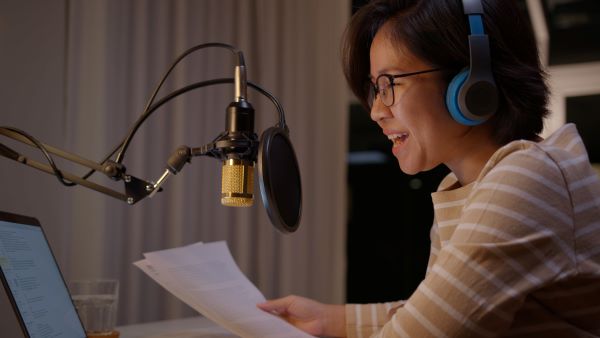
Audiobooks: Twin Flames Studios, over the years, has been the premier provider of remote-recorded, author-narrated audiobooks in the world.
In an age where we are dealing with AI voices, artificial voices, all of that is coming up. Somebody’s authentic voice is truly part of their brand and the way that your voice comes across to people is important. There are about 6 or 7 primary factors in the quality and tonality, the tempo, the breathing, all of these things in somebody’s voice that are highly correlated in research with people’s perception of somebody’s credibility, of their trustworthiness, and of their leadership ability. If you are just speaking off the cuff as a lot of people think they can do in an audiobook, you are doing yourself a huge disservice because you don’t know the impact that you are making that you don’t want to have on somebody.
Having it somebody who is not just an audio engineer. An audio engineer and a producer or a director are two different things. An audio engineer is to make sure the audio quality is there and to make sure that the words get spoken the way that they’re written. A director or producer is there for the performance. Those are very different. When we work with authors, our producers cover all of those roles. We are making sure that not only is the audio quality high but that the audio quality is consistent from session to session. We quite literally can hear if you’ve had a bad day and something needs to shift. That comes up in meetings or sessions.
We can hear if you’ve been stressed out. You’re breathing pattern changes. Those things get brought up in the sessions so that you can become aware of them and adjust and hear for consistency how your voice needs to be from session to session. In addition to us catching mistakes or finding where you’ve trailed off, you’ve mumbled a word, you are breathing in a way that is loud or strange, or you’re cutting off sentences.
There are a lot of things that happen in people’s vocal patterns that are so habitual. We can’t hear them ourselves and they can hurt credibility. For example, a lot of people uptalk at the end of their sentences like it’s a question, but it’s not a question and we can’t hear it. That’s one of those things we have to coach people out of sometimes because when you speak with uptalk at the end of your sentences, it diminishes your credibility because it sounds like you’re unsure of what you’re doing.
I have played with it a little bit. We were going to read one of my old fiction novels on YouTube to boost our YouTube channel. I found that I can’t read well out loud anymore. I know when you’re in the third grade, you have to be good at it. I’m used to speaking on the cuff and there can’t be anything worse than hearing me breathing heavily in your ear. You are feeling the heat while I’m talking about a business book. A lot of times I’ll get that huffing in there and I sound more like an 800 or 900 number.
We can reduce some of that with post-production audio magic but our goal is always to get the best quality of performance on the first go-round because that always produces the the best effect.
If they can’t do that with you, it will get you a 900 number issue so you can start a new career. How’s that? Tell us what you are up to. You guys also have a podcast platform. One of the things that I believe is if you are a podcaster, you should read your own book because it is part of your brand. Do a lot of your podcasters do that?
Most of our podcasts arise out of our work with our authors. Most of the podcasting that we do falls into podcasting styles that are book companion podcasts. These are intentionally brief or limited series podcasts that allow our authors to dip a tow into podcasting with a very specific purpose, and launching their book with a book companion podcast that allows them to engage readers, allows them to bring people in. It almost can be used as an online book club. I have one author who works a lot with corporate training and he specifically offers his podcast into the employee resource groups that he works with as a resource, and then they’re piggybacking off of that into other projects and things like that. That’s a strategy that I like and that I propose to folks in that particular area.
We also do monthly thought leadership podcasting, which is a little bit different than the weekly or bi-weekly traditional podcasting that most people are familiar with. That’s where we very intentionally, through even search engine optimization, search terms for somebody’s website. We’ll craft topics that are crucial and central to that company or that author’s platform, and create one episode a month that is more deeply produced, perhaps a little bit more elaborate or longer form, maybe 45 minutes or so instead of a half-hour show.
That material gets repurposed in a number of different ways. It turned into an article for LinkedIn in addition to the show notes, the templates, the social media posts, the video clip, and all the other things that we tend to do with podcast content, and newsletters. That helps their audiences not suffer from content overwhelm and allows the host to go much deeper into a topic and narrow rather than broad. It also helps our host to own their platform. Even if they’re having other guests on, they are still owning that expertise and owning that space on the topics that they’re interested in and bringing in other people to enrich that conversation rather than doing a straight-up interview where they’re acting in more of a facilitator role.
We actually do that. We have a monthly training on the first Friday of every month and we invite people to listen to it if you want to go over and see the slides go over to YouTube, but I love that format because people show up. It’s a live training and they ask questions and I would say probably 95% of the questions asked are things that the average person is thinking but doesn’t have access to someone to ask. I think it is more enlightening to hear that other people have the same sorts of questions on their minds that you do. I know people are like, “I don’t want to ask this. I just seem stupid.” You’d be surprised how many other people are thinking the same thing. There’s no such thing as a stupid question on it.
If you’re going to do a limited one, is that 6 episodes or 8 episodes? How does that work with the limited?
Podcasting
It depends on the length of the content. I generally recommend anywhere from 6 to 12 episodes, depending on the depth of the content that you want to go into. It helps our authors manage their risk if they’re new to podcasting and they’re not sure they’re going to like it, or they’re not sure what the process is going to be and if it’s their best use of time and energy. Even if they decide to walk away from podcasting at the end of that, they still have just this gorgeous series that they can use and repurpose and hold up as almost another book in some way, shape, or form.
I was talking the other day with someone who asked me if I had written a book. I said, “I’ve written chapters for books, but mostly I produced podcasts,” because the podcasts that I’ve produced over the years are very similar to what someone would do to produce a book, at least in terms of energy and money, and they have very specific purposes over time.
I could see you repurposing this into a course too. For most people who aren’t listening to a podcast or are listening to a podcast, if they see that visual if you’re recording YouTube or video at the same time, you now have pretty much a course that you just have to make up a workbook for.
You can do content libraries. You can pull together wisdom guides at the end of the series. There’s a lot that can be done and the same thing with your audiobook, that’s another area with your book and your audiobook. You ought to be considering whether you can use your book and your audiobook to create a mini course as an entry-level product or your enterprise, whatever that happens to be. Can you create something that is three sessions long or four sessions long that maybe gets dripped out via email, not even necessarily on a course platform to help people get to know you and enjoy your work, and draw them in further into a relationship with you.
We’re bombarded so much with material every day. We’re at a point now in history where it’s important for us to focus our time and energy on the most important and very specific things that we want to coach, train, teach, and inspire. They are also going to be deep and rich for our audiences so that when they come to us for this body of work that we’re offering, they can keep up to a certain extent with the amount of content that we’re producing. It’s steady but not a deluge of information.
The other thing you can do with that is if you’re afraid like, “I’m going to do this limited podcast and then nobody will hire me to do the work. You’re sorely mistaken because most DIY-ers will try it but they need other pieces of your expertise. You could actually put this together to nurture people into buying that bigger course and getting the details as well. I think there’s a statistic out there that a good 90% of the people if you give a how-to tutorial will not do it. Most people will look at it. It’s like those same people who go to a Jack Canfield event and they’ll say, “I went to Jack Canfield,” but you can tell they never did the work.
Humans are humans. We’re super cute. We’re not always so bright. It’s okay. We’re getting there. We’re all doing the best we can.
Humans are humans. We're super cute. We're not always so bright. But it's okay because we do the best we can. Share on XWhere do you see the audio market going? I know that most serious authors with serious programs are doing this. Do you think that that’s going to be the way that we consume most of this in the future? I think I’ve seen a big uptick in 2020 since COVID.
Future Of The Audiobook Market
Here’s the thing about the audiobook market. It’s well over $1 billion market in the US alone. The audiobook market has had double-digit growth year on year for ten years running. This is not a fad. All your books have been around since 1930. They’re not going away. It’s the most accessible form of media. You can listen when you can’t read. You can listen when you can’t watch. Busy people default to audio and younger people are listening to audio more and more. Diverse audiences are listening more and more. Audiobook listening has doubled in the last five years.
Almost 2/3 of Americans listen to podcasts on a weekly basis. Audiobooks aren’t that far behind. People continue to grow with it. One of the things we’re finding in society right now is the prevalence of what’s being called neurodivergence. I’m not disputing that term at all and at the same time, there’s so much diversity among humanity and how we like to consume things. I think having variety is a wonderful thing because a lot of our books are audiobooks that we produce and this is how I consume things too. I’ll listen to the audiobook but then I’ll buy a hard copy of it as well.
That happens constantly with nonfiction. You get through the book because that’s what you have time for on a walk, in your car, doing dishes, if you’re working out, or if you’re waiting for your kids. You grab the audio because it’s accessible and if you’re like me, you listen to it a little bit faster. You do certain voices. You’re like, “Pick up the pace. Let’s go.” That’s fine. That’s what it’s designed for. If I want to do a deeper dive on certain topics, I’ll go and grab the book and then work through the exercises or grab a workbook to go with it and get more out of it than I would have if I had tried to make the time to read the book in a hard copy or even on a Kindle.
You get through the book because that's what you have time for. But if you're doing something, you grab the audiobook because it's accessible. You can listen to it a bit faster. Share on XI do listen at an accelerated speed also, and I find it doesn’t serve me well in life because I’m used to listening to one and a half, two times the speed. It seems like everybody’s taking a long time. Here’s another thing you can do with this audiobook. If you have exercises in your book or you have a workbook accessory, one of the downsides is when someone buys a book from a distributor, whether it’s an audiobook, a print book, or an ebook, you as the author don’t get to lead capture. If you create an audiobook and you have those accessory exercises or workbooks that people can download for free, now you’ve lead-captured your email list. It does behooves you to put something there that people can go grab that’s kind of a bonus for buying that book as well.
I completely agree with that.
Tina, thank you so much for being on and sharing all this. Where can people find you if they would like to find out if they have the voice for it? Let’s talk about that first before we go. Your people are self-narrators on this. How do you know your voice is right to do your own book?
That is an important question. We do full-service audiobook production. if someone comes to us and they’re not sure, we have professional narration, we have hybrid versions where the author can do part and a professional narrator can do part. We’re very picky about how we pair narrators with the author and we don’t take rights or royalties. We are author advocates. We’re always looking for both a good vocal match and a good energy match among our narrators. We’ll go through 120 narrator auditions per book for those particular books.
When someone is looking at doing their own book, they need to be able to be reasonably sure that they’re not going to hate doing the process. That’s the most important thing. Is this going to be a slog for you? Nobody is going to want to hear that background underlying your voice. It will come through, I promise you.
The other thing is we have to look at whether this is the best use of your time, energy, finances, and all of that. There are some situations where somebody’s voice, even professional public speakers runs into this regularly. Someone is so dynamic and wonderful and fabulous for a one-hour keynote. They’re an amazing trainer, coach, and consultant, but you don’t want to listen to them for 4, 5, or 6 hours on an audiobook because they might have a vocal quality that is grating over time.
Certain people have an energy that is so high that you want to hear them from that stage and they’re doing so great. It’s like, “This is amazing.” If you had to listen to that for 2 or 3 hours, your adrenals would be spent. That’s where we often use the hybrid version. You get all of that energy at the beginning or the end of the book or in a piece of each chapter, and then there’s a narrator who can match a nice vocal tone and that higher energy but also can create a little bit more of a pace that is going to be consumable. Something like that happens, and then we run into certain things that are medical factors and physical factors. We did an amazing book for the former Chief Learning Officer for General Electric, a fabulous amazing man, but he had eighteen surgeries for neck cancer. He couldn’t narrate his full audiobook.
Merril Hoge is known for his work on ESPN, a former football player. Amazing dude. We did his as a hybrid because one of the things he talked in his book is about post-concussion syndrome. For him, going through the whole book required a level of focus that his nervous system wasn’t compatible with. We’ve had some folks who may have had severe dyslexia who couldn’t do their entire book. We did hybrid versions and things like that. We always work through what’s going to be best for the author’s time, energy, and budget, and what’s going to be best to serve the work. Ultimately, it has to be about serving the work and getting out in the world. Those are the conversations that we have.
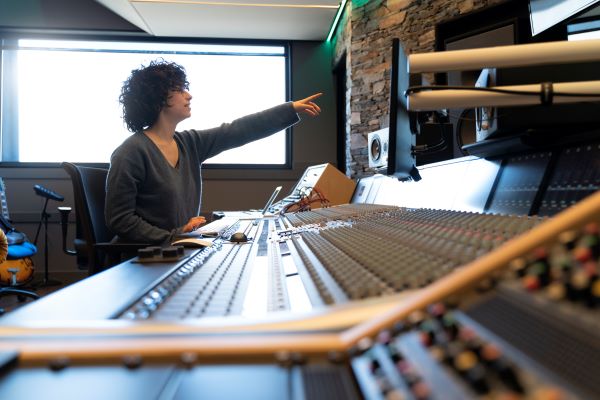
Audiobooks: Twin Flames Studios always works through what will be best for the author’s time, energy, and budget and serve the work.
I remember from my advertising days, we were always told to speak to the client with a smile on our face even on the phone. I feel like I feel like you have to do the same thing. However, they followed up by giving us a voodoo doll for Christmas. I don’t know if that was speaking with a smile on my face or trusting the pen into the doll like, “I can’t do this. How am I going to do this? Where do we find you if we want to talk more about either doing a podcast or an audiobook?
If you don’t have a voodoo doll of me, you’re welcome to reach out. You can find me and my team at TwinFlamesSstudios.com. If you look up Twin Flames Studios on any of the socials, you’ll find us there. You can also Google Tina Dietz, I am the first instance on Google that you will find. It’s not hard to find it at all. Please feel free to reach out. We’ve got lots of resources, FAQs, and all that good stuff to help you learn more about whether an audiobook or a podcast is a good path for you.
Thank you so much for sharing all this with us.
My pleasure. Thanks for having me.
Important Links
- www.BreakthroughAuthorMagazine.com
- www.BreakthroughAuthorsBookClub.com
- Twin Flames Studios
- The Start Something Show
- Drink From the Well
About Tina Dietz
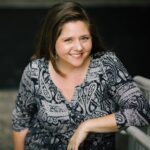 Combining her work throughout 20 industries in 8 countries, her signature humor, and communication expertise, Tina helps global leaders effectively amplify their message and deepen their influence through podcasting and audio publishing; consulting with executives and teams from known brands like Johnson & Johnson, General Electric, and UGG Boots.
Combining her work throughout 20 industries in 8 countries, her signature humor, and communication expertise, Tina helps global leaders effectively amplify their message and deepen their influence through podcasting and audio publishing; consulting with executives and teams from known brands like Johnson & Johnson, General Electric, and UGG Boots.
Tina is the founder and CEO of Twin Flames Studios, an award-winning audio publishing house dedicated to cultivating cultures where excellence, creativity, and innovation thrive. Her first podcast, The StartSomething Show, was named by INC Magazine as one of the “Top 35 Podcasts for Entrepreneurs” and her latest podcast, “Drink From the Well,” reaches more than 300,000 people around the world who are thirsty for her ‘leadership elixir.’
You can discover more about her innovative work at www.TwinFlamesStudios.com.
Tina Dietz is an award-winning and internationally acclaimed speaker, audiobook publisher, podcast producer, and vocal leadership expert whose work and shows have been featured on media outlets including ABC, NBC, CBS, The Wall Street Journal and Chicago Tribune, Inc.com, and Forbes. She’s been named one of the top podcasters for entrepreneurs by INC.com, and Tina’s company, Twin Flames Studios, re-imagines thought leadership through podcasting and audiobooks for experts, executives, and founders. Her podcast, “Drink From the Well,” reaches more than 300,000 listeners eager to drink her entertaining ‘leadership elixir’ on the most important topics leaders and teams are dealing with in the workplace today.
Love the show? Subscribe, rate, review, and share!

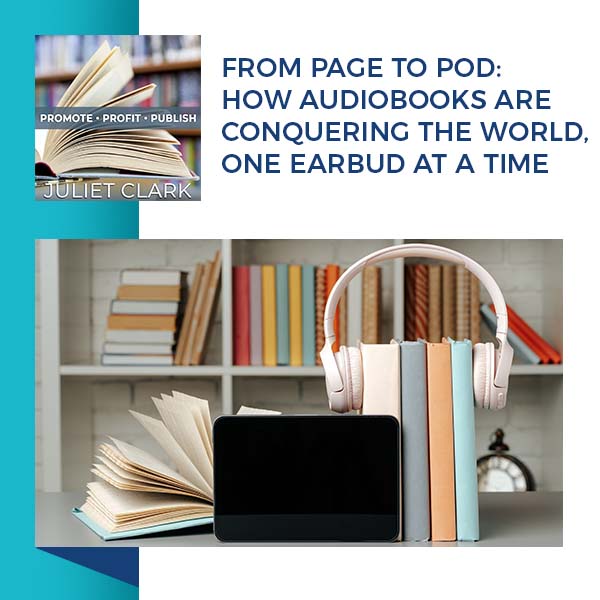







Leave A Comment